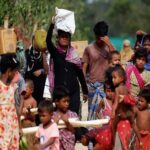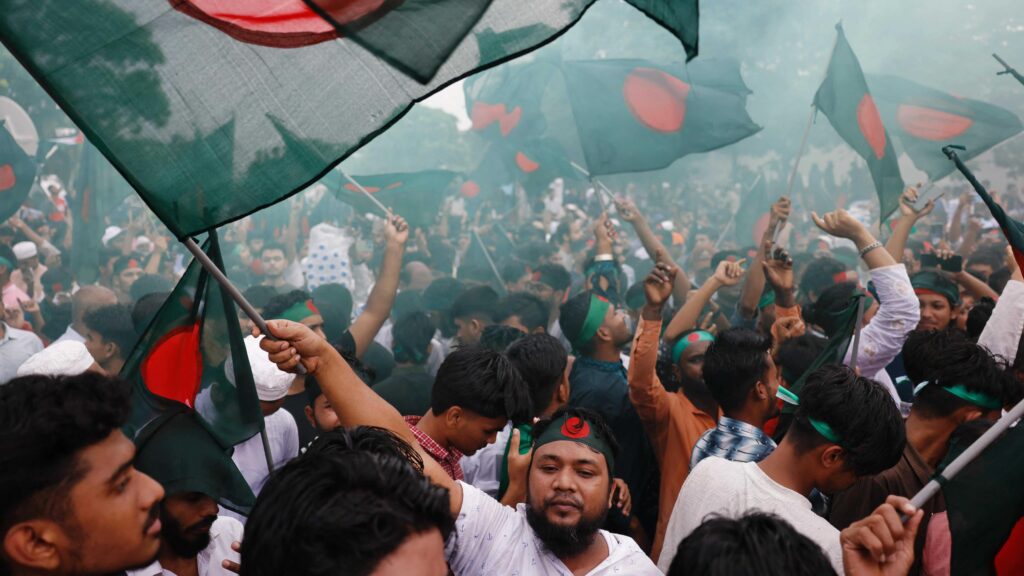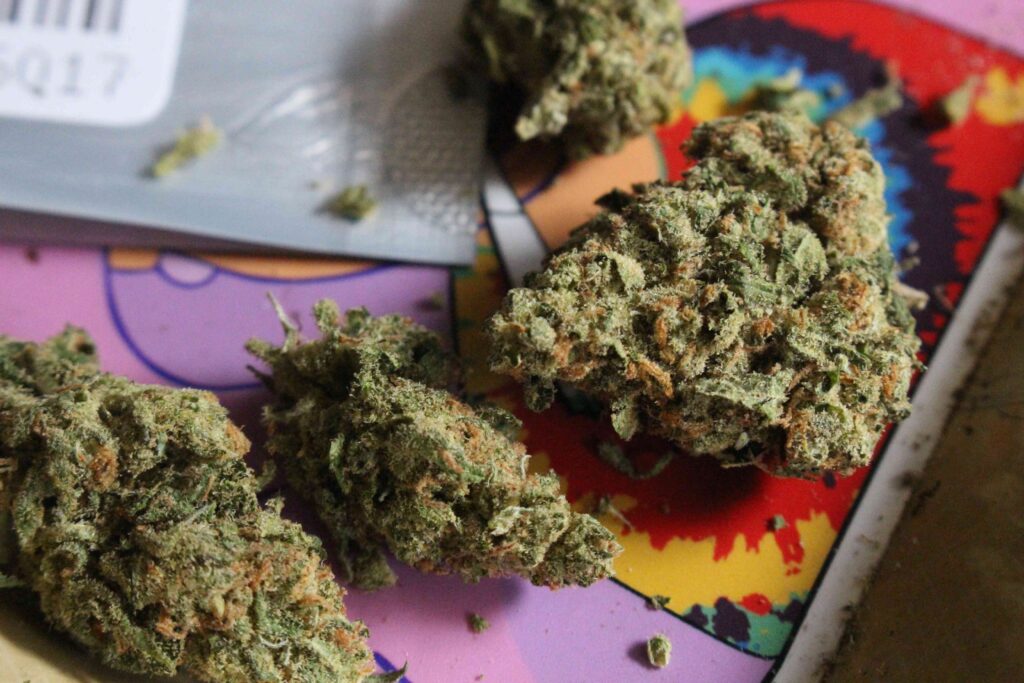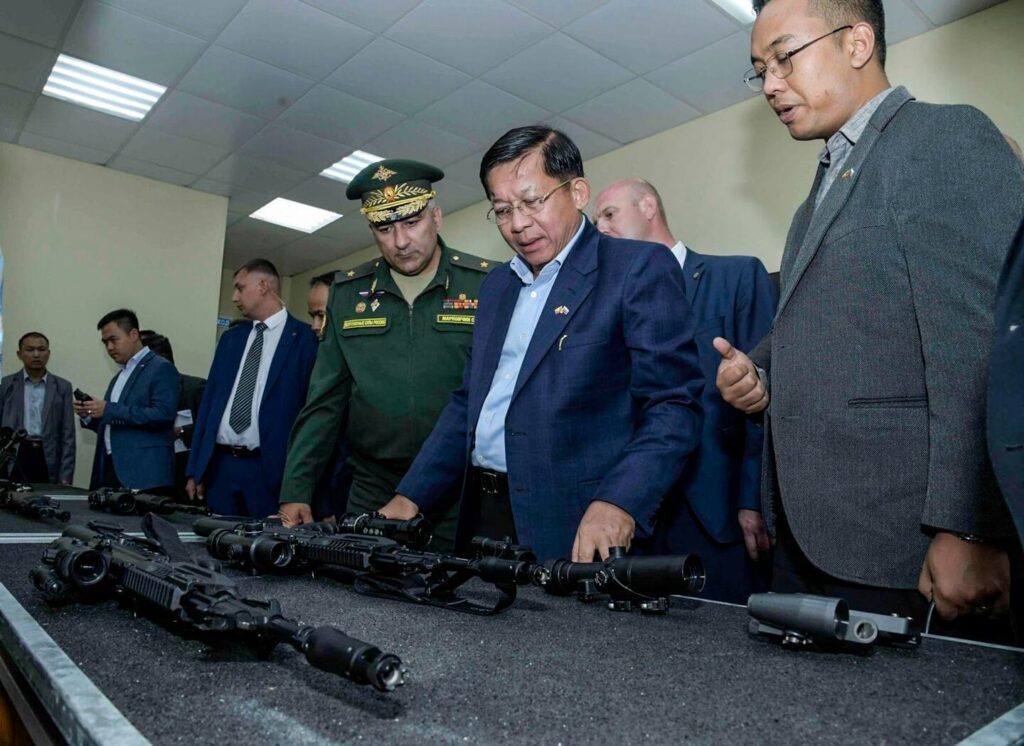MANTRAYA ANALYSIS#66: 23 MAY 2023
BIBHU PRASAD ROUTRAY
Abstract
Among the many factors behind the ethnic violence between the Meitei and Kuki communities in Manipur is the alleged presence of Myanmarese in the five hill districts of the state. Whereas the Kuki organisations have welcomed the ‘victims of the civil war in Myanmar’, for the state government and the Meitei organisations in Manipur, such ‘illegal migrants’ pose a security challenge to the state. The schism between such perceptions of ‘victimhood’ and ‘threat’ isn’t easy to narrow down and may well fuel future rounds of unrest in the hill areas.
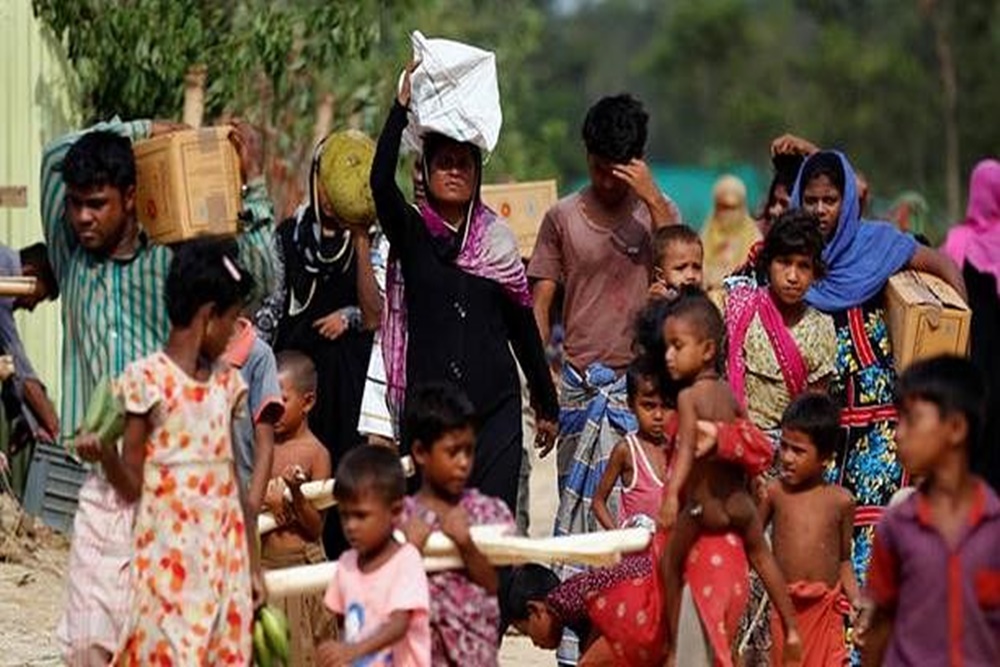
Introduction
On 17 May, the Union government and the state government of Manipur told the Supreme Court that the genesis of the ethnic clashes in the state that resulted in over 70 deaths was the crackdown on illegal Myanmar migrants’ illicit poppy cultivation and ‘drug business’ in the hill districts. The analysis demonstrates that neither poppy cultivation in Manipur is an insurmountable problem nor is the number of migrants from Myanmar massive to constitute a security challenge to the state.
Military Coup in Myanmar and its Impact on Manipur
The February 2021 military coup in Myanmar has spilled over Manipur’s border areas. Armed clashes between the Myanmar military and groups associated with it with the ethnic armed organisations and the People’s Defence Forces (PDFs) have driven some Myanmarese civilians, belonging to the Kuki-Chin clan into Manipur and Mizoram. The fact that the 398-kilometre-long border is primarily porous and marked by the free access of 16 kilometres for people on either side of the border facilitated such movement. On a couple of occasions, artillery fired by the Myanmar military landed inside Manipur, creating panic. Due to the ethnic homogeneity and concomitant affinity between the people on both sides of the border, these Myanmarese were welcomed by the Kukis. Worldwide, ethnic solidarity has refused to abide by state boundaries. Either Manipur or Mizoram was no different. It may be considered ‘illegal’ from the state’s perspective, but ‘humanitarian and acceptable’ from the viewpoint of the host population.
In spite of the fact that such a movement of population has a history of at least two years, no estimate of the actual number of such migrants is available with the state government. That is the second part of the problem which may have fuelled apprehensions among the majority Meitei population in the state that the Kuki tribals are out to deliberately alter the demography of the hill district where they reside. In December 2022, the Imphal-based Federation of Haomi, a civil society organisation formed for the protection of the indigenous people asked the Manipur government to ‘keep a record of these villagers, including where they have been allowed to stay.’[1]
The absence of data, therefore, has resulted in divergent narratives on migration, being referred to as ‘huge’ in narratives found in Meitei-dominated areas, whereas it is played down and described as merely a temporary phenomenon by the Kukis. This is further reflective of the absence of imagination on the part of the state government to manage the population influx and keep a tab on it, once it started.
Arrest and Detain
Population movement from Myanmar into Manipur, however, isn’t a new phenomenon. Nor is it a humongous problem. In February 2023, Chief Minister Biren Singh said that 393 Myanmar nationals have been apprehended in the state since 2012. Out of them, one was deported,107 are in judicial custody, 105 are in detention centres, and 180 were released on bail.[2] Of these, 210 were apprehended between 2022 and February 2023.
Although the apprehension data does not reflect the actual number of Myanmarese immigrants in Manipur, it can be concluded that the influx hasn’t gone up appreciably following the coup in Myanmar. Media estimates suggest about 5000 Myanmarese may have entered Manipur since February 2021[3], but these are not backed by any evidence. Among the measures implemented by the state government to crack down on illegal migration in the five hill districts sharing a border with Myanmar, are biometric surveillance, house-to-house Aadhaar verification, and periodic launch of a ‘special drive for identification of illegal migrants’ in the hill districts. In addition, 34 police outposts are being set up between Jesami and Behiang in the border area with the approval of the Ministry of Home Affairs.
As a result, a total number of 114 immigrants have been detained this year: 81 in January in the district of Tengnoupal, and 10 and 23 in February and April respectively in Churachandpur district. Temporary shelters and detention centres for the migrants have come up in Churachandpur, Tengnoupal, and Chandel districts. In the last week of March, a cabinet sub-committee was formed under the supervision of Chief Minister N Biren Singh to oversee the identification operation. Manipur Tribal Affairs Minister Letpao Haokip is the chairman of the sub-committee while Water Resource Minister Awangbow Newmai and Education Minister Th Basanta Singh are the members.
Participation in Violence and Drug Production
The state government has increasingly pushed its claim that Myanmar-based drug lords and “illegal immigrants” from the neighbouring country were behind the ethnic violence. It is alleged that poppy, harvested in Manipur, is taken to Myanmar for processing and then brought back to the state. Officials have claimed that since 2017, over 18000 acres of poppy cultivation have been destroyed in the state. Due to such stringent measures, no poppy could be harvested this year, which has resulted in massive financial losses for the drug lords. As a result, they have been fermenting trouble and stopping the drive against drugs.
Chief Minister Biren Singh has consistently accused the Myanmar citizens of being responsible for poppy cultivation in Manipur and the Kukis for providing them protection. Addressing a function at 1st Manipur Rifles Parade Ground in Imphal on 15 August 2022, he said that 539 acres of poppy plantation has been destroyed in the state, 432 people have been arrested and drugs worth Rs 818 crore seized have been seized in the last few months.[4] On 17 March, Manipur police seized 20.26 kilograms of poppy seeds and took into custody two youths in Old Boljang village in Kangpokpi district. The fact that four two-wheelers, with Myanmar number plates, were being used has been flagged as proof of the involvement of Myanmar citizens by Chief Minister Singh.
While that is a possibility, data on arrests of persons under the Narcotic Drugs and Psychotropic Substances (NDPS) Act of 1985 portray a different picture. According to the state’s special anti-drugs unit Narcotics and Affairs of Border (NAB), of the 2518 people arrested in the past five years, 381 were Meiteis, 1,083 Muslims, 873 Kuki-Chin, and 181 others. The number of arrests was highest in 2022 at 658.[5] Till mid-May 2023, 80 people have been arrested under the NDPS Act. Kukis are neither the only community to indulge in the cultivation of poppy and drug trade, nor are they among the largest group in the overall arrests. More importantly, the data doesn’t seem to indicate the arrest of any Myanmar citizen for involvement in poppy cultivation and drug trade.
Areas under poppy cultivation continue to rise and fall in Manipur. According to the NAB, 15497 acres of land where poppy cultivation was found in the past five years. Of these, 13,122 acres were in Kuki-Chin-dominated areas, 2,340 acres in Naga-dominated areas, and 35 acres under others.[6] The NAB data further shows poppy cultivation in Kuki-Chin-dominated places increased 30 percent from 2,001 acres in 2017-18 to 2,600 acres in 2021-22, but has decreased to 804 acres in 2022-23. The poppy cultivation areas under the Naga tribes, however, increased from 305 to 350 acres. While this does indicate the predominant involvement of the Kukis in the cultivation of poppy in the state, there is hardly any evidence that supports the Chief Minister’s allegation regarding the involvement of the Myanmar citizens.
Conclusion
Manipur indeed has a drug problem. However, its roots are mostly in the golden triangle region and not so much in Manipur. Compared to 1154 acres of area in the entire state in 2022-23, Myanmar’s 40,000 hectares (98842 acres approximately) were under poppy cultivation in 2022.[7] Poppy cultivation in Manipur, therefore, isn’t an insurmountable problem. It needs a well-calibrated strategy and involvement of the Kuki population. The example of Afghanistan between 2001 and 2020 shows that forcible spraying of insecticide and destruction of standing crops hardly achieves the desired result. Unless the farmers are sensitized and alternate livelihood programmes are initiated, poppy would always remain an attractive cash crop for them. Unfortunately, Manipur’s war on drugs has somewhat demonized the Kuki tribes and the ‘Myanmar migrants’. Instead, the Kukis can play a key part in not only eradicating poppy cultivation in Manipur but also stopping the smuggling of drugs into Manipur from Myanmar.
With regard to the illegal migration of Myanmarese into Manipur, available data do not demonstrate a huge population movement from that country. Migration that has taken place due to the civil war situation in that country needs humanitarian handling. The ethnic similarity that unites the Kukis and the Myanmar civilians on the other side of the border needs to be factored into the state’s response. The displaced Myanmarese need to be treated as refugees. Vilifying their migration as a security threat to the country and the Kukis as a co-conspirator in the project are likely to alienate the latter from the state government, leading to an escalation of violence.
END NOTES
[1] “Seven Myanmar army personnel killed in ambush, in Manipur, says Federation of Haomi”, 30 December 2022, The Hindu, https://www.thehindu.com/news/national/other-states/seven-myanmar-army-personnel-killed-in-ambush-in-manipur-says-federation-of-haomi/article66320668.ece.
[2] Sobhapati Samom, “Seven Myanmar nationals held at Manipur’s Imphal airport: Police”, Hindustan Times, 12 April 2023, https://www.hindustantimes.com/india-news/myanmar-nationals-arrested-at-imphal-airport-5-adults-sent-to-detention-center-2-minors-placed-at-juvenile-observation-homes-foreignersact-manipur-101681318158898.html.
[3] “Manipur To Keep Myanmar Refugees In “Shelter Homes”: Sources”, NDTV, 31 March 2023, https://www.ndtv.com/india-news/manipur-to-keep-myanmar-refugees-in-detention-centres-sources-3907738.
[4] “Manipur To Set Up More Police Outposts Along Border Areas To Check Infiltration From Myanmar: CM N Biren Singh”, Outlook, 15 August 2022, https://www.outlookindia.com/national/manipur-to-set-up-more-police-outposts-along-border-areas-to-check-infiltration-from-myanmar-cm-n-biren-singh-news-216567?utm_source=related_story.
[5] “15,400 Acres Under Poppy Cultivation In Manipur, 2,500 Arrested In 5 Years: Sources”, NDTV, 16 May 2023, https://www.ndtv.com/india-news/15-400-acres-under-poppy-cultivation-in-manipur-2-500-arrested-in-5-years-sources-4040264.
[6] Ibid.
[7] “Opium cultivation surges since Myanmar military seized power: UN”, Al Jazeera,26 January 2023, https://www.aljazeera.com/news/2023/1/26/opium-cultivation-surges-since-myanmar-military-seized-power-un#:~:text=Opium%20poppy%20was%20cultivated%20on,percent%20increase%20compared%20with%202021.
(Dr. Bibhu Prasad Routray is the Director of Mantraya. This analysis has been published as part of Mantraya’s ongoing “Fragility, Conflict, and Peace Building” project. All Mantraya publications are peer-reviewed.)
To read previous Mantraya Analyses CLICK HERE

